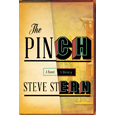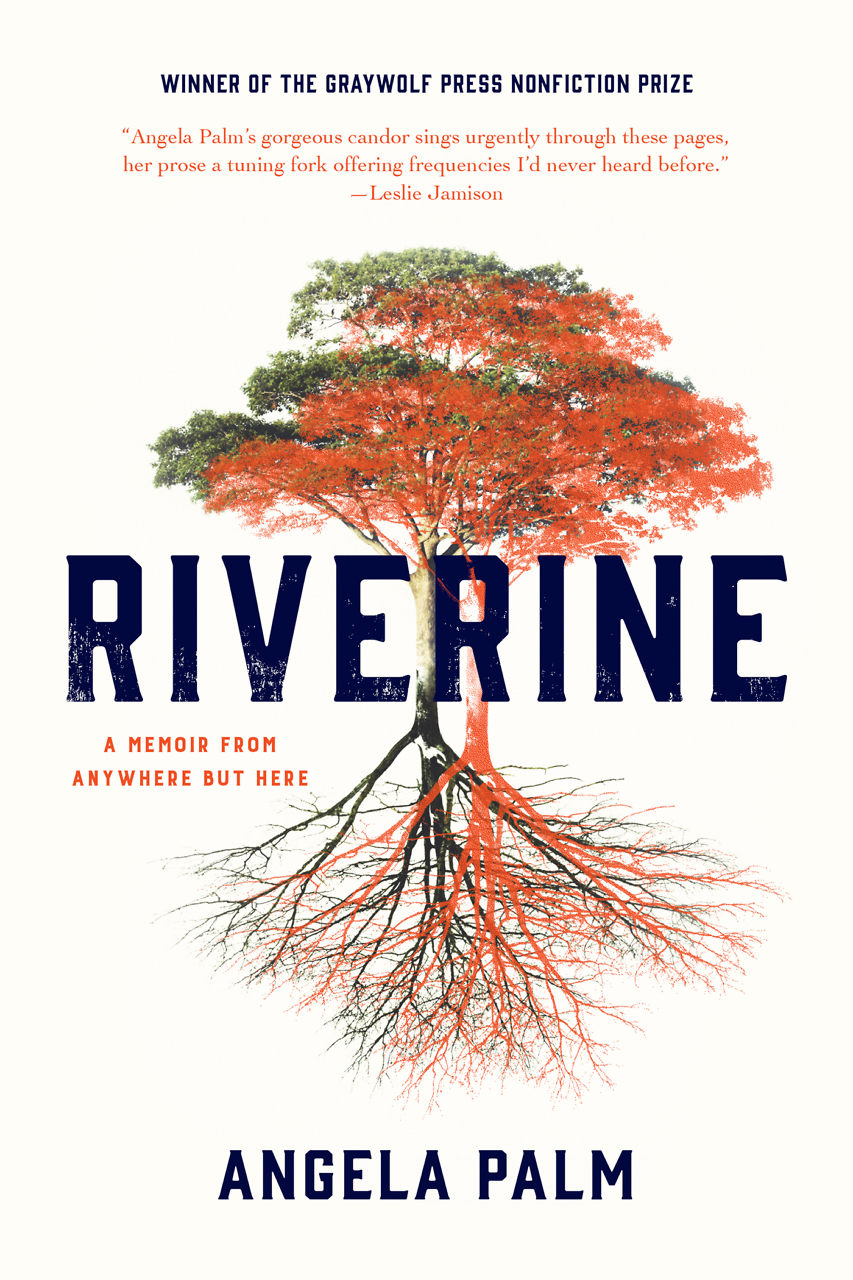No Holding Back
Cheryl Strayed, author of Wild practices radical empathy in every form
Social media is increasingly coming to be seen as a force for social isolation, but Cheryl Strayed offers a one-writer antidote to the loneliness of the Internet. Author of last year’s bestselling memoir, Wild: From Lost to Found on the Pacific Crest Trail, she speaks in the voice of “radical empathy,” according to Steve Almond, who tapped her for “Dear Sugar,” the wildly popular advice column in The Rumpus that Strayed began writing in 2010. When a collection of letters from the column, Tiny Beautiful Things: Advice on Love and Life from Dear Sugar, was published last summer, The New Yorker called her “the Internet’s greatest relief from itself.” Strayed earns these accolades by breaking the unspoken rules of the form, baring her own mistakes and pain while addressing those of others.
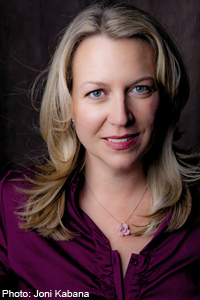 Perhaps ironically, part of what makes Strayed so successful as an antidote to the Internet is her active and responsive Internet presence, primarily through her column (on hiatus while she’s on book tour) and through Facebook and Twitter. There—as in her memoir, novel, and essays—she offers readers not just connection but acceptance: the kind of acceptance that leads to self-acceptance. When a twenty-two-year old who signs her Dear Sugar letter “Seeking Wisdom” asks, “What would you say to your 20-year-old self?” Strayed responds with a long portfolio of snapshots—stalker friendships, addiction, unprotected sex, comparing herself to others, calling a lover’s bluff, being an ungrateful child, losing a parent—that led her to realize that most things in life that make you who you are have to do with forgiveness.
Perhaps ironically, part of what makes Strayed so successful as an antidote to the Internet is her active and responsive Internet presence, primarily through her column (on hiatus while she’s on book tour) and through Facebook and Twitter. There—as in her memoir, novel, and essays—she offers readers not just connection but acceptance: the kind of acceptance that leads to self-acceptance. When a twenty-two-year old who signs her Dear Sugar letter “Seeking Wisdom” asks, “What would you say to your 20-year-old self?” Strayed responds with a long portfolio of snapshots—stalker friendships, addiction, unprotected sex, comparing herself to others, calling a lover’s bluff, being an ungrateful child, losing a parent—that led her to realize that most things in life that make you who you are have to do with forgiveness.
This ability to tell her story while inviting others to ask questions of their own lives has attracted the attention of Oprah Winfrey, who made Wild the first pick in Oprah’s Book Club 2.0, and Reese Witherspoon, who will produce and star in the film version of the book. With Wild and Tiny Beautiful Things appearing within months of each other last year—and with both shooting straight to The New York Times bestseller list—Strayed’s success seems nothing less than meteoric.
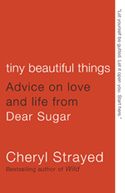 In fact, she has long been admired within the writing community for her autobiographical essays and for her novel, Torch, published in 2006. Raised in rural Minnesota by her mother in a house without indoor plumbing, Strayed writes openly about her early struggles as a writer: “I’d finally reached a point where the prospect of not writing a book was more awful than the one of writing a book that sucked,” she tells a young Dear Sugar writer crippled with a paralyzing mix of self-doubt and self-aggrandizement. “When I was done writing it, I understood that things happened just as they were meant to. That I couldn’t have written my book before I did. I simply wasn’t capable of doing so, either as a writer or a person.” (This particular column has inspired coffee cups emblazoned with its memorable tagline: “Write like a Motherf#$%**er!”)
In fact, she has long been admired within the writing community for her autobiographical essays and for her novel, Torch, published in 2006. Raised in rural Minnesota by her mother in a house without indoor plumbing, Strayed writes openly about her early struggles as a writer: “I’d finally reached a point where the prospect of not writing a book was more awful than the one of writing a book that sucked,” she tells a young Dear Sugar writer crippled with a paralyzing mix of self-doubt and self-aggrandizement. “When I was done writing it, I understood that things happened just as they were meant to. That I couldn’t have written my book before I did. I simply wasn’t capable of doing so, either as a writer or a person.” (This particular column has inspired coffee cups emblazoned with its memorable tagline: “Write like a Motherf#$%**er!”)
Strayed will spend weeks thinking about a reader’s letter before getting up in the middle of a night to write a response. She writes at whatever length is needed to get to the heart of the question. She is not afraid to rework material. Though each falls into a different genre, all of her books cover the territory of her own lived experience, especially that of what she calls her “genesis story”—the loss of her mother when Strayed was twenty-two. (A line from her novel, Torch, is telling: “She’d never done this before—basked in the glory of her mother’s death, of her own orphan story,” her narrator thinks. “It felt dirty and cruel and yet also like a complete relief, as if her grief really had passed away from her entirely now, as if her life was only a story that she could hold up for display.”)
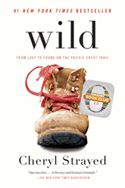 Strayed’s mentors and peers say she is never pretentious, overly sentimental, or false. In an interview with Poets & Writers magazine, George Saunders, Strayed’s creative-writing professor at Syracuse, praises her hard work: “She’s a great reviser, and the decision she always took was one that was directed toward honesty.” In Wild, Strayed’s memoir of hiking the Pacific Crest Trail in 1996 as a woman alone in the world and the woods, she writes about the lies that do and do not serve us and how sometimes the path to deeper honesty is to make up something new: “I knew that if I allowed fear to overtake me, my journey was doomed. Fear to a great extent, is born of a story we tell ourselves, and so I chose to tell myself a different story from the one women are told,” she explains. “Fear begets fear. Power begets power. I willed myself to beget power. And it wasn’t long before I actually wasn’t afraid.”
Strayed’s mentors and peers say she is never pretentious, overly sentimental, or false. In an interview with Poets & Writers magazine, George Saunders, Strayed’s creative-writing professor at Syracuse, praises her hard work: “She’s a great reviser, and the decision she always took was one that was directed toward honesty.” In Wild, Strayed’s memoir of hiking the Pacific Crest Trail in 1996 as a woman alone in the world and the woods, she writes about the lies that do and do not serve us and how sometimes the path to deeper honesty is to make up something new: “I knew that if I allowed fear to overtake me, my journey was doomed. Fear to a great extent, is born of a story we tell ourselves, and so I chose to tell myself a different story from the one women are told,” she explains. “Fear begets fear. Power begets power. I willed myself to beget power. And it wasn’t long before I actually wasn’t afraid.”
Strayed may write expansively, but by the time she gets there, she has earned the right to pierce the soul. Fierceness is her medium: “I don’t know any other way to write,” Strayed told Publishers Weekly. “The writing I’m interested in goes for the jugular—it just does not hold anything back.”
Cheryl Strayed will appear at the Nashville Public Library on April 18 at 6:15 p.m. as part of the Salon@615 series. The event is free and open to the public.

